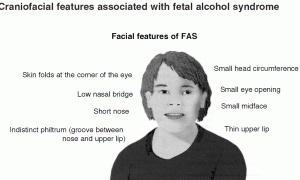
Menopause, sometimes called “the change of life”, can be very different for each woman who goes through it. The average age for menopause is 51. It is a normal phase of life, just like puberty, but will be a unique experience for each woman.
While hot flashes and sleep issues might affect one woman, another might feel more energy and a newfound sense of freedom. A third woman may hardly feel a change at all.
Menopause Defined
Menopause is technically defined as the time right after your very last menstrual cycle. However, symptoms can begin years earlier (and be called “perimenopause”) and last years after. Some menopause symptoms can last for months or years after they begin.
Levels of the hormones estrogen and progesterone change during menopause. These hormones are made within the ovaries, and changes in their levels can contribute to a variety of symptoms. After one full year without a period, a woman can say she has “been through menopause”.
Postmenopause follows and will last the rest of a woman’s life.
While the average age of a woman having her last period is 51, some women experience it in their forties, and still others don’t go through it until their late fifties.
Smoking and certain operations (such as hysterectomy) can cause early menopause.
Signs of Menopause
Symptoms can vary widely, but the most common changes women might notice during the change of life include:
• Change in menstrual cycle — shorter or longer, heavier or lighter.
• More frequent periods and/or spotting.
• Periods lasting more than a week.
• Hot flashes, usually caused by changing estrogen levels — a sudden feeling of heat in the body, especially the upper body. Most hot flashes last from 30 seconds to 10 minutes.
• Vagina and/or bladder issues. Changing estrogen levels may cause your genital area to become thinner and drier, making sexual intercourse less pleasurable. Vaginal or urinary infections as well as bladder leakage may occur.
• Difficulty sleeping.
• Changes in sexual habits — you may crave sex more or less often.
• Mood changes. Moodiness and/or irritability around menopause is not uncommon.
• Memory issues.
• Body changes. You may lose muscle tone and gain fat. Your waist may get larger and your skin thinner. You could develop stiffness in joints and muscles.
Heart and Bone Health
The risk of osteoporosis increases in menopause as a woman’s body loses estrogen. Estrogen helps to control bone loss and assists the body in breaking down old bone and replacing it with healthy new bone. This can lead to bones becoming weak and breaking more easily. Ask your doctor if you are at risk and be sure you are getting enough calcium in your diet.
Following menopause, women are also at higher risk for heart disease. Changes in estrogen levels as well as getting older generally are the main causes. Weight gain and high blood pressure may be added risk factors. Consult with your healthcare provider to assess your risk level for heart disease.
What About the Lost Hormones?
There has been some debate about whether or not women should use hormone supplements to help relieve menopause symptoms. While it’s ultimately a personal choice, here is some general information:
Birth control pills can help during perimenopause to lessen frequent, heavy or unpredictable periods. They may also help with hot flashes. Estrogen and/or progesterone, sometimes called hormone replacement therapy (HRT), can also help with menopause symptoms and prevent bone loss. However, there are risks. The FDA suggests women take the lowest dose that will work for their symptoms. Talk to your doctor to decide the best course of action for you.
Staying Healthy During and After Menopause
To stay healthy during and after menopause, follow these lifestyle tips:
• Don’t smoke.
• Eat a low fat, high fiber diet with plenty of vegetables, fruits and whole grains.
• Get enough vitamins and minerals, including calcium and vitamin D.
• Try and maintain your healthy, ideal weight.
• Exercise at least 3 days per week.
Other tips:
• Take any medicines recommended by your doctor for health issues such as high cholesterol, high blood pressure and osteoporosis.
• Get regular breast and pelvic and breast exams. Get checked for colon, rectal and skin cancer.
• Use a water-based vaginal lubricant, vaginal estrogen cream or estrogen tablet for help with vaginal dryness.
To ease hot flashes:
• Keep a diary to find out what might trigger your hot flashes, and then avoid the triggers.
• When a hot flash begins, go somewhere cool and/or drink a cold drink.
• Sleep in a cool room with a fan on.
• Check with your doctor to make sure your hot flashes are caused by menopause and not other health issues.
• Ask your doctor if there are any medicines available to you that can help you to manage hot flashes. There are a few drugs approved for other uses that might prove helpful for you. For example, some anti-depressants can be helpful for some women in coping with hot flashes and other symptoms of menopause.
Learn More about Menopause
Following are a few resources to get you started in learning more about menopause:
1) The North American Menopause Society
2) Menopause – WomensHealth.Gov
3) 34 Menopause Symptoms – All about Each Symptom of Menopause:
Have you or a loved one faced menopause? Share your experience and tips with us in the comments.




Leave a comment
You must login or register to add a new comment.